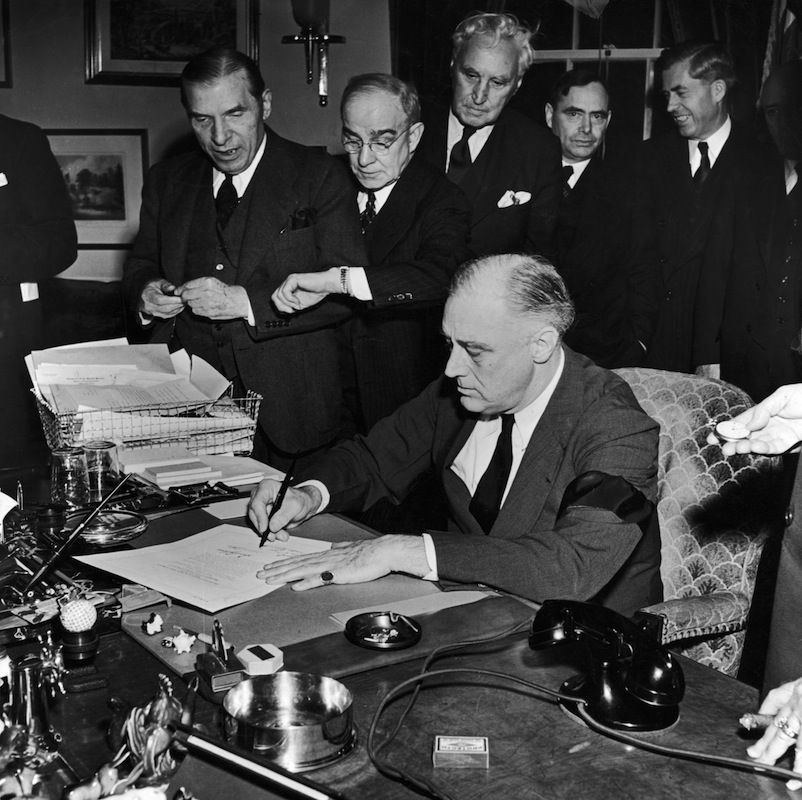
President Franklin Roosevelt’s words to Congress at what would be the start of the U.S.’s entry into World War II turned out to be a self-fulfilling prophecy: “”Yesterday, Dec. 7, 1941—a date which will live in infamy…”
On that date, the U.S. had been attacked by Japan at Pearl Harbor — and on this date, Dec. 8, the U.S. declared war. The news came, as TIME noted in the next issue of the magazine, “after 22 years and 25 days of peace.”
Here’s what TIME had to say about FDR’s speech:
When he said: “Always will our whole nation remember the character of the onslaught against us,” the room roared with a cry of vengeance. “No matter how long it may take us to overcome this premeditated invasion,” continued the President, “the American people in their righteous might will win through to absolute victory.” At this, the biggest cheers of the day. “We will not only defend ourselves to the uttermost but will make it very certain that this form of treachery shall never again endanger us. . . . We will gain the inevitable triumph—so help us God. I ask that the Congress declare . . . a state of war. . . .” The President left the House. Members began roaring impatiently: “Vote! Vote! Vote!” The Speaker gaveled for order. The Senate left.
The President had arrived at 12:12 p.m. At 1 p.m. exactly the Senate passed the declaration of war, 82-to-0. (There were 13 absentees, Washington-bound by train and plane, and one vacancy.)
The House, listening with marked impatience to get-right speeches by the G.O.P.’s Leader Joe Martin and Ham Fish, received with a whoop the identical Senate bill, adopted it as a substitute. The vote: 388-to-1.
Read the full article here, in the TIME Vault: National Ordeal
More Must-Reads from TIME
- Donald Trump Is TIME's 2024 Person of the Year
- Why We Chose Trump as Person of the Year
- Is Intermittent Fasting Good or Bad for You?
- The 100 Must-Read Books of 2024
- The 20 Best Christmas TV Episodes
- Column: If Optimism Feels Ridiculous Now, Try Hope
- The Future of Climate Action Is Trade Policy
- Merle Bombardieri Is Helping People Make the Baby Decision
Write to Lily Rothman at lily.rothman@time.com